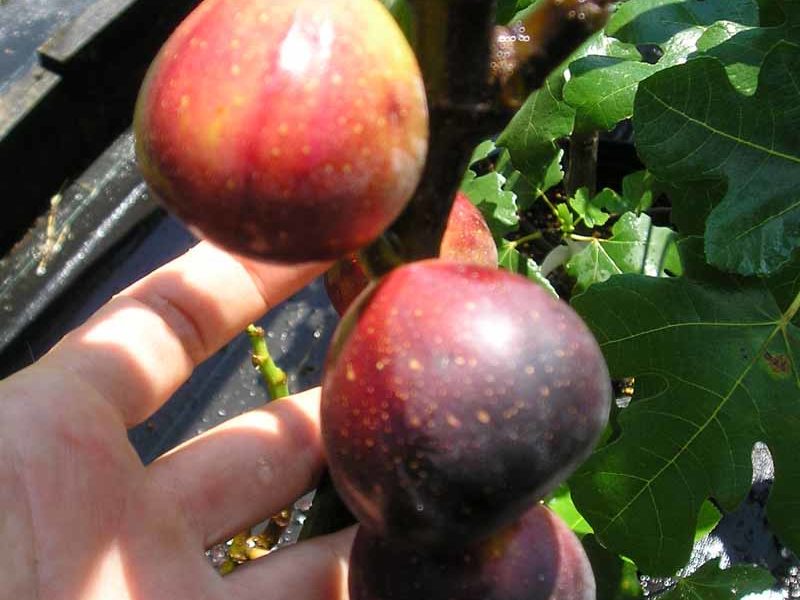[printfriendly]
Easy to Grow Fruits
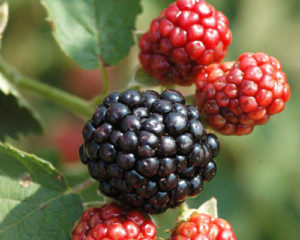
If you’re new to gardening, and worried that your first effort to grow fruit will turn out to be a fruitless venture, the best place to begin is with easy to grow types of fruits. Easy to grow fruits are more forgiving of soil types, more disease resistant, and better able to tolerate busy gardeners with little time to water. This does not mean that you can just dig a hold and drop the plant in.
The gardener that spends the time choosing a good site with lots of sun, enriching the soil, and paying attention to watering the plant when needed, is the one who will reap the best harvest. But “easy to grow†really does mean that you’ll spend little or no time spraying for fungus and bugs. These types of fruits are also good choices for people that want to grow their fruit organically. Let’s check out the possibilities:
Berries: Blackberry, blueberry, boysenberry take up little room and can even be grown in containers. They are the easiest fruits to get started with, but if you’ve got your heart set on blueberries, makes sure your soil is acidic enough. Heavy clay soils can be problematic, so test your soil to insure your success.
Big Shade Trees: Chestnut, black walnut, pecan, and mulberry are great choices if you’ve got the room, and would like a shady edible place to hang out in. Chestnuts and pecans need cross pollination to set fruit, so you’ll need two trees. Be sure you get varieties that pollinate each other.
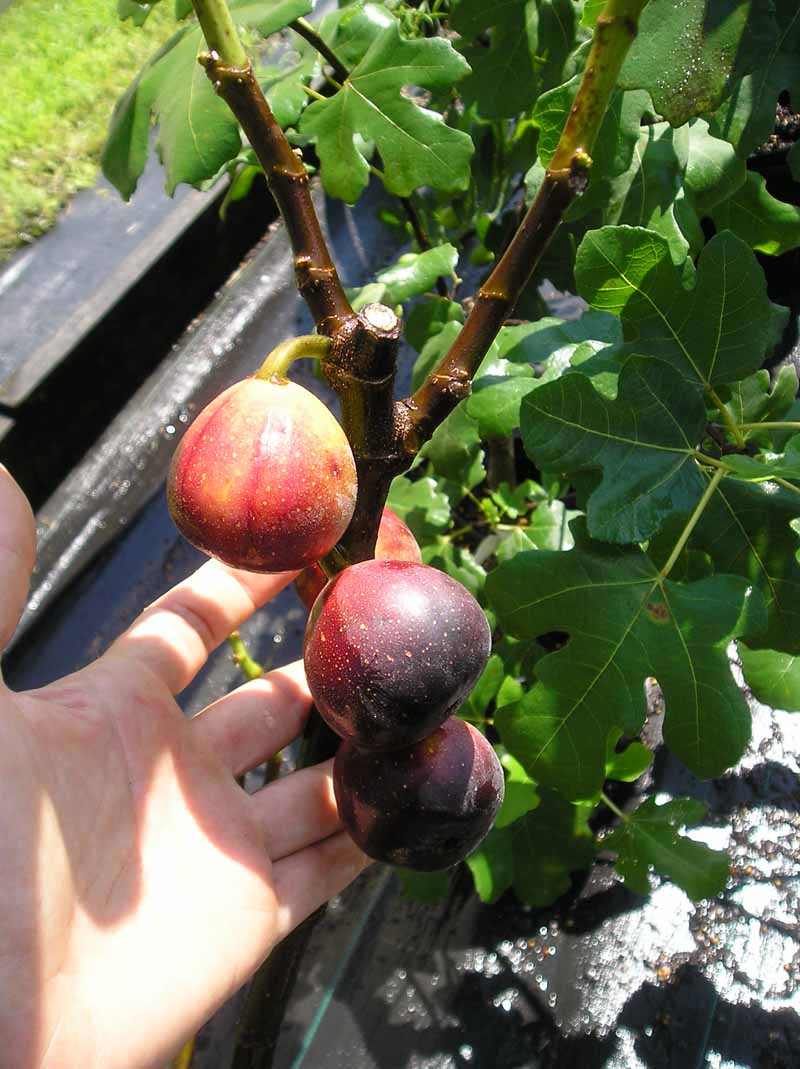
Tried and True: Persimmon, pears and figs were mainstays of the old southern homestead. These fruits are so easy to grow, and long lived. Make sure you pick pears that are well suited to our area, (many are not), and that you get two different varieties for cross pollination and good fruit set.
Exotic but Easy to Grow: Loquats, olives, pineapple guava, jujube, pomegranate, quince. Yes, you can grow all of these, in fact they are some of the easiest fruits to grow. Pineapple guava, loquat, and olives make wonderful evergreen hedges and screens. Jujubes are almost date like when dried. All but pineapple guava fruit well without a pollinator.
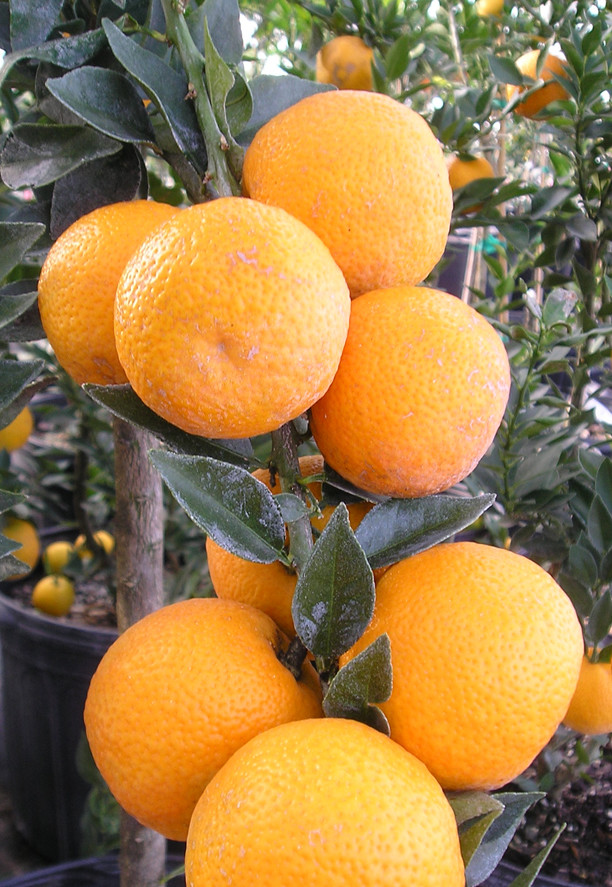
Citrus: Citrus is an easy plant to grow in our area. Be sure to choose one of the more cold tolerant types like Satsuma, Changsha tangerines, Kumquats, or Meyer lemon. These are all much more successful if grafted on Trifoliate rootstock.
Low Care Vines: Muscadine grapes and kiwi are excellent for covering an old fence or bordering a vegetable garden. You’ll want to get the right variety of kiwi; make sure it’s a named variety for your area, and that you buy a male vine to pollinate your female vines.
Near Wild Fruits: If you want to e a true locavore, you should look into growing some of the fruits that are native to our area; elderberry, Chickasaw plum, muscadine grapes, and paw paws all have good quality fruit and are well worth adding to your orchard, edible landscape, or urban food plot.
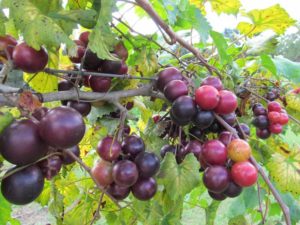
After you’ve decided on what fruits you want to grow, you should consider a couple of other things that will insure that your new fruit growing venture is successful. First, choose varieties that are well suited to your area. Here in North Florida and South Georgia we have very short winters. Most fruit trees require a winter dormancy period, and to be successful you’ll have to find varieties that require 500 to 600 hours of winter chill.
To read more about chill requirements, and good varieties for your area, check out IFAS online document “Deciduous Fruits for North Florida†http://dixie.ifas.ufl.edu/pdfs/gardening/deciduous.pdf.
Another important consideration is making sure your fruit tree is on the right rootstock. Many fruits like citrus, persimmon, and pears are grafted. Rootstock plays the part of insuring your tree can withstand the soil diseases in your area, controls the size of the tree, and in the case of citrus makes it more cold tolerant. It’s always best to ask your nursery person what rootstock your tree is grown on and why. With careful selection and a little research on the basics of growing fruit trees it’s easy to grow your own fruit trees and enjoy the home ripe sweetness of your own fruit.

